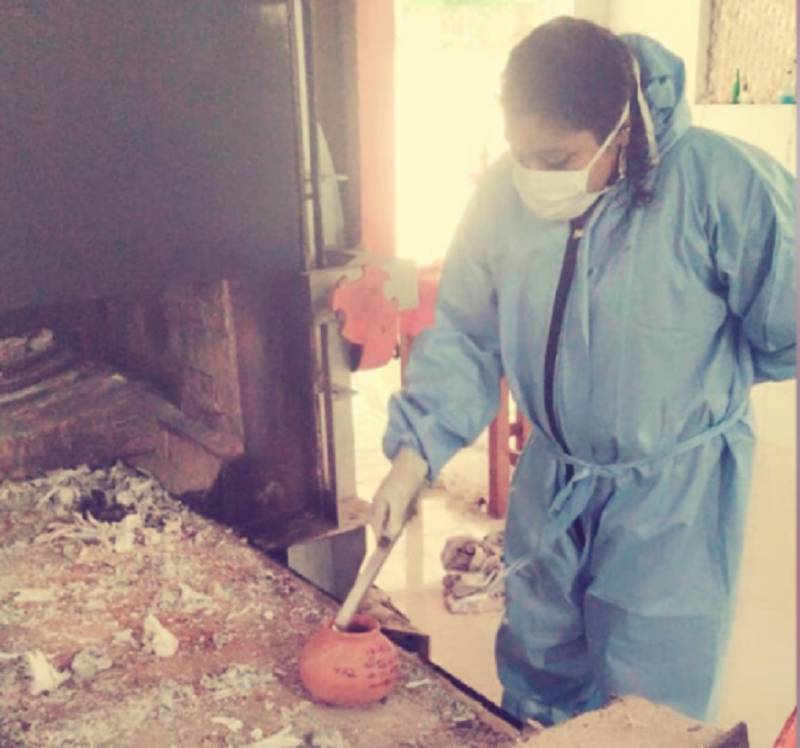
Subina Rahman spent Eid overseeing funeral rites at a crematorium in the Irinjalakuda town of Kerala. As the Covid-dead piled up at the crematorium, she gently loaded them onto carts before rolling the bodies into two electric furnaces. When the fires crackled, she prayed for the deceased.
“I have been overseeing this crematorium over the last two years,” says the 29-year-old manager. “Since the outbreak of Covid, my work has shifted almost entirely to cremating the dead.”
Since the second coronavirus wave hit Kerala, Rahman has set aside all her commitments to give the deceased a decent send-off. When families and priests have turned away, Rahman has not only lit the funeral pyres, but also consoled the bereaved and recited a prayer or two for them.
“For ages, women have been kept away from ministering to the deceased,” she says. “My job is allowing me to serve Hindu and Christian families.”
Among handful women in a male-dominated bastion, Rahman takes pride in her work. It has not only allowed her to understand other communities better but has also brought her closer to them.
“The pyre does not discriminate on the basis of religion,” she says. “If anything, it has made me realise why more women must be involved in after-death rituals.”
Rahman, who grew up in a poor Muslim family, joined the crematorium as an office clerk two years ago. When the cremator’s position fell vacant after a few months, she took up the job with some reluctance. Her family wasn’t supportive at first nor was she sure she would be accepted by Hindus in a sacred space, leave alone shepherd their rituals.
“It’s amazing to see a woman show such courage amid a raging pandemic,” says K.R. Vijaya, an advocate in Irinjalakuda who has been campaigning for women’s rights. “In death, the grieving need empathy more than a robotic dispensing of duties, and women are better suited for that.”
Vijaya says Rahman’s work is not only critical amid the Coronavirus outbreak in Kerala but also speaks to the larger question of interfaith work and solidarity to build community ties.
Over the last month, the cremators have seen death visit their crematorium day and night.
“We have been seeing about eight Covid bodies a day, sometimes more,” says Sunil. “People didn’t even know about our little crematorium until now, so we are working overtime.”
The cremators arrive early to hand over the remains of the previous day to the waiting families. Subina then goes home to finish her household chores before returning in the afternoon.
Even though her work is exhausting both physically and emotionally, she believes it’s her “calling.”
“There should be dignity in death,” she says. “We hear crematoriums and burials grounds are running out of space, so we want to help as many people as possible.”
The clamour for space since the second surge has not only brought smaller crematoriums and burial grounds into focus but has also highlighted the role of low-castes, civil society actors, community leaders and women in holding it all together for the grieving families.

Post Your Comments